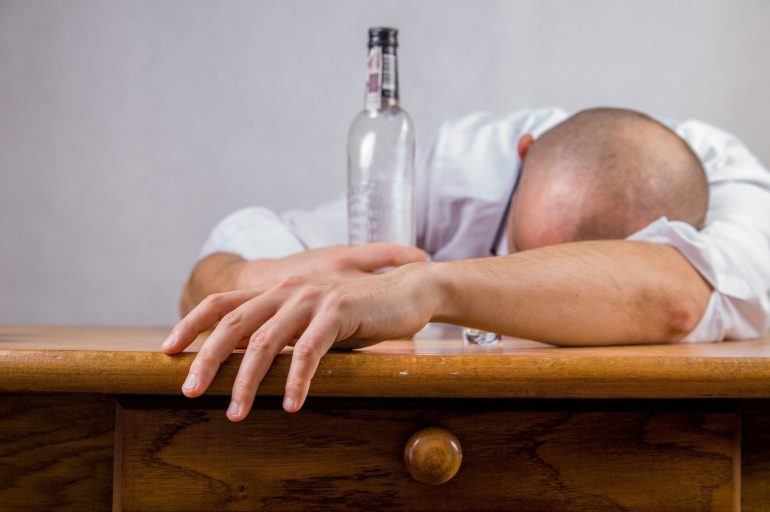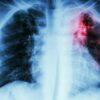Harm reduction treatment helped people experiencing homelessness and alcohol use disorder reduce their drinking and improve their health-even if they didn’t quit drinking alcohol.
In a randomized clinical trial, a research team led by Washington State University psychology professor Susan Collins studied more than 300 people from three Seattle homeless shelters and programs. Participants were randomly assigned to four groups receiving different services: the first group received behavioral harm reduction treatment, which is a form of collaborative counseling that does not require sobriety or drinking reduction, plus an anti-craving medication called naltrexone; the second had the counseling and a placebo; the third, the counseling alone; and the fourth served as a control group receiving regular services.
All three groups that received the behavioral harm reduction treatment over a three-month period saw more improvement than the control group—with the most improvement in the group that had both the counseling and the anti-craving medication.
“We found participants didn’t have to stop drinking to start recovery,” said Collins, lead author on the study published March 10 in the journal The Lancet Psychiatry. “We didn’t ask participants to change their drinking in any particular way, but looking at the averages generated in our statistical models, we found that people who got the combined counseling and medication experienced a 59% reduction during their treatment in the number of drinks consumed on their heaviest drinking day.”
Other improvements during the three-month treatment included a 43% reduction in overall alcohol-related harm, a 29% reduction in frequency of drinking and a 10% improvement in people’s self-assessment of their physical health.
All participants were asked to fill out surveys at different intervals related to their alcohol use, health and quality of life. While the group that had counseling and medication showed statistically significant improvement on five out of six measures, the other two groups that had harm reduction counseling but no active medication showed statistically significant improvement on three out of the six measures.
The researchers also tested urine samples. Participants who received combined treatment and medication were almost three times more likely to have undetectable levels of an alcohol biomarker than those in the control group, meaning their drinking had declined significantly.
For over a decade, Collins and her co-authors from the University of Washington and the VA Puget Sound Health Care System, have been working together with people who use substances and community-based agencies to develop evidence-based behavioral harm reduction treatment for alcohol use disorder.
The treatment involves a set of three strategies to reduce the negative effects of alcohol use. First, interventionists support patients in setting their own treatment goals instead of dictating that they quit. Second, interventionists and patients discuss ways to stay safer and healthier even when drinking. Third, instead of just tracking sobriety, interventionists work with patients to collaboratively measure and track different kinds of alcohol-related harm that may be important to patients.
Collins said that traditional alcohol treatment programs that demand abstinence fail to help many people experiencing homelessness and alcohol use disorder. By some estimates, people who experience chronic homelessness and alcohol use disorder have, on average, undergone alcohol treatment 16 times in their lives.
“Oftentimes, these folks are labeled ‘treatment failures,’ but we started to realize after many years of doing this work, maybe it’s us, the treatment system that’s failing them, more than the other way around,” said Collins. “What we do with harm reduction treatment is try to meet people where they are at. Instead of falling into this paternalistic, advice-giving approach that turns people off, we try to support them in reaching their own goals.”
Many of the study participants had multiple goals, only some of which involved reducing drinking. As might be expected, the most common goal was finding more stable housing, but other goals included re-connecting with family, finding work and engaging in hobbies they once enjoyed.
While this study included people experiencing homelessness, the findings also hold potential for other people with alcohol use disorder, Collins said.
“This approach has the potential to help anybody who would like to change their alcohol use but might not be ready or able to stop entirely,” said Collins. “We can do treatment in an incremental way that might be more sustainable and less demoralizing than going through these cycles, where people feel if they aren’t able to stop drinking, they can’t start recovery or they aren’t good enough for our treatment system. Instead, it is our definition of recovery and our treatment system that needs to change.”
Cognitive behavioral therapy reduces insomnia symptoms among young drinkers
More information:
The Lancet Psychiatry (2021). DOI: 10.1016/S2215-0366(20)30489-2
Provided by
Washington State University
Citation:
Clinical trial shows alcohol use disorder recovery can start without sobriety (2021, March 10)
retrieved 10 March 2021
from https://medicalxpress.com/news/2021-03-clinical-trial-alcohol-disorder-recovery.html
This document is subject to copyright. Apart from any fair dealing for the purpose of private study or research, no
part may be reproduced without the written permission. The content is provided for information purposes only.



